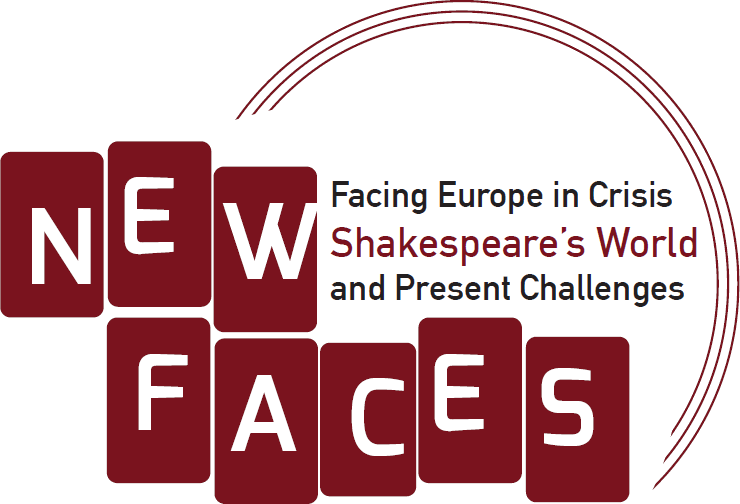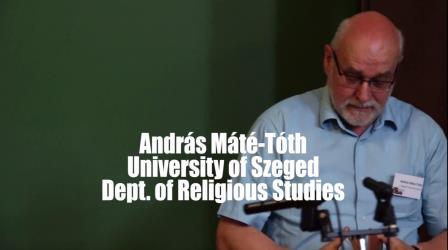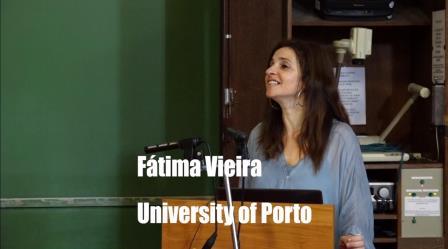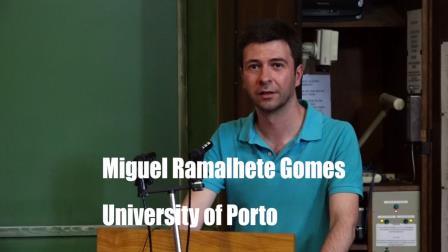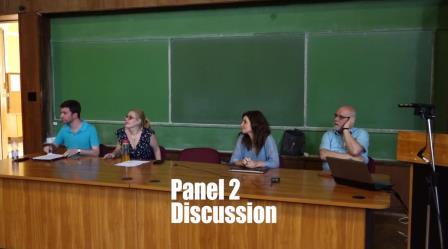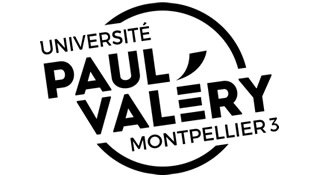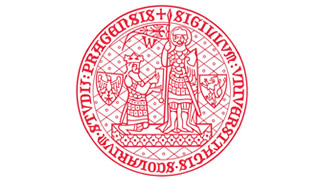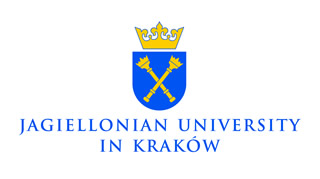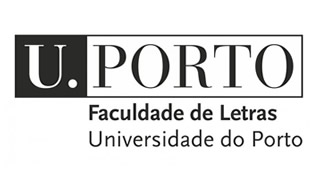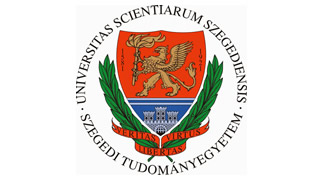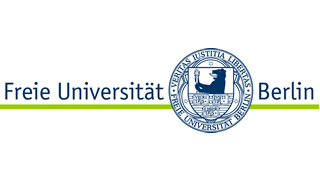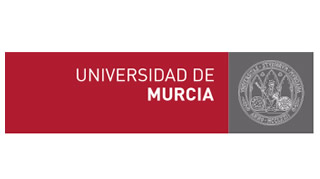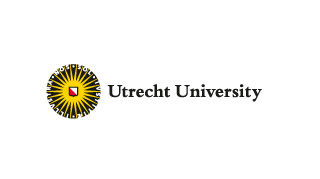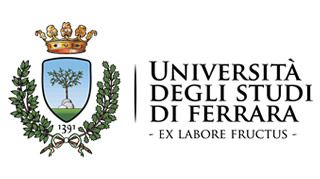Chair:
Anna KÉRCHY
Speakers:
1.András MÁTÉ-TÓTH (professor, University of Szeged, Department of Religious
Studies)
2.Fátima VIEIRA (professor, University of Porto)
3.Miguel RAMALHETE GOMES (professor, University of Porto)
Speaker 1. András Máté-Tóth (University of Szeged, Department of Religious Studies) :
“Two Types of Crisis in Central and Eastern Europe”
SUMMARY
| ENG |
“Two Types of Crisis in Central and Eastern Europe” Attempts to define the concept of crisis. First, there is a crisis in social theory itself, because of fragmentation, withdrawal into meta-theory, and consequently, lack of relevance to societal challenges. More importantly, a distinction should be made between crisis in the modern and the postmodern paradigm. In the former, crisis is a dramatic moment in which a transition from an old order to a new order takes place. In the postmodern paradigm, we see the transition from modern order to the postmodern disorder, or as Zygmunt Bauman terms it, liquid modernity. Uncertainty in the face of rapid change becomes a permanent feature, frustrating long-term planning and making flexibility into the chief virtue. As crisis is now the normal state of things, it is no longer dramatic. In Shakespeare’s plays, decisions have to be taken in a short time span, allowing for little reflection, and often end in dramatic violence. We, as spectators, like the idea of drama, yet we live in a society in which change is not dramatic but permanent. After the collapse of Communism, Central and East Europeans expected freedom and a sense of community. What they got instead is a market economy which thrives on permanent crisis. Yet tragically, we still think of this as a transient crisis of the first type, which will dissolve into a new order. |
| NDL |
“Twee soorten crisis in Centraal en Oost Europa” Probeert het begrip crisis te definiëren. Allereerst is er een crisis in de sociale theorie op zich, vanwege fragmentatie, terugvallen op metatheorie, en bijgevolg gebrek aan relevantie voor maatschappelijke problemen. Belangrijker is dat een onderscheid gemaakt moet worden tussen crisis in het moderne en in het postmoderne paradigma. In het eerstgenoemde is een crisis een dramatisch moment waarin een overgang van een oude naar een nieuwe orde plaatsvindt. In het postmoderne paradigma, zien we een overgang van de moderne orde naar de postmoderne wanorde, of zoals Zygmunt Bauman het noemt, de vloeibare moderniteit. Onzekerheid door snelle veranderingen wordt een permanent kenmerk, frustreert planning op langere termijn, en maakt flexibiliteit tot de belangrijkste deugd. Omdat crisis nu de normale staat is, is deze niet meer dramatisch. In de toneelstukken van Shakespeare moeten beslissingen in korte tijd worden genomen, zodat er geen tijd is om deze te overdenken, en het loopt vaak uit op dramatisch geweld. Als toeschouwers houden wij van dat gevoel van drama, terwijl we in een maatschappij leven waarin verandering niet dramatisch is maar juist permanent. Na de val van het Communisme rekenden de inwoners van Centraal en Oost Europa op vrijheid en een gevoel van gemeenschap. Wat ze echter kregen was een markteconomie die een permanente crisis veronderstelt. Tragisch genoeg denken we hierover nog steeds als een tijdelijke crisis van het eerste type, die zal leiden tot een nieuwe orde. |
| HU |
“Kétféle válság Közép- és Kelet-Európában” Megkísérli a válság fogalmát definiálni. A társadalomelmélet már önmagában válságban van, melynek oka a fragmentáltság, a metaelméletbe való visszavonulás, ezek következménye pedig a társadalmi kihívásokkal szembeni irrelevancia. Ennél fontosabb azonban, hogy különbséget kell tenni a válság modern és posztmodern paradigmája között. Az előzőben a válság egy olyan drámai pillanat, amely során megtörténik az átmenet a régi rendből az újba. A posztmodern paradigmában viszont a modern rendből a posztmodern rendszertelenségbe, Zygmunt Bauman kifejezésével a likvid modernitásba való átmenetet figyelhetjük meg. A bizonytalanság a gyors változásban állandósul, lehetetlenné téve a hosszútávú tervezést; itt a legfőbb erény a rugalmasság. Mivel ma a válság a dolgok hétköznapi állapota, már nem számít drámainak. Shakespeare drámáiban a döntéseket rövid idő alatt meg kell hozni, nincs sok idő reflexióra, és a vég gyakran drámai erőszakba torkollik. Nézőként értékeljük a drámát, azonban olyan társadalomban élünk, amelyben a változás nem drámai, hanem folyamatos. A kommunizmus bukása után a közép-kelet európaiak a szabadságot és a közösséghez való tartozás érzését remélték megvalósulni, ehelyett azonban piacgazdaságot kaptak, amelyet a folyamatos válság táplál. Tragikus módon ugyanakkor még mindig úgy gondolunk a jelen helyzetre, mint az első típus egy átmeneti válságára, amelyet egy új rend követ. |
| FR |
"Deux types de crise en Europe centrale et de l'Est" András Máté-Tóth tente de définir le concept de crise. Premièrement, il y a une crise dans la théorie sociale elle-même, à cause de la fragmentation, du repli sur la méta-théorie et, par conséquent, du manque de pertinence pour les défis sociétaux. Plus important encore, une distinction doit être faite entre la crise dans le paradigme moderne et postmoderne. Dans le premier cas, la crise est un moment dramatique dans lequel une transition d'un ordre ancien à un nouvel ordre a lieu. Dans le paradigme postmoderne, nous voyons le passage de l'ordre moderne au désordre postmoderne, ou, comme le nomme Zygmunt Bauman, la modernité liquide. L'incertitude face au changement rapide devient une caractéristique permanente, frustrant la planification à long terme et faisant de la flexibilité la principale vertu. Comme la crise est maintenant l'état normal des choses, elle n'est plus dramatique. Dans les pièces de Shakespeare, les décisions doivent être prises dans un court laps de temps, ce qui permet peu de réflexion et se termine souvent par une violence dramatique. En tant que spectateurs, nous aimons l'idée du drame, mais nous vivons dans une société où le changement n'est pas dramatique mais permanent. Après l'effondrement du communisme, les Européens du Centre et de l'Est attendaient la liberté et le sens de la communauté. Ce qu'ils ont à la place, c'est une économie de marché qui se nourrit d'une crise permanente. Pourtant, tragiquement, nous considérons encore cela comme une crise transitoire du premier type, qui va se dissoudre dans un nouvel ordre. |
Speaker 2. Fátima Vieira (University of Porto) :
SUMMARY
| ENG |
“Utopia and Crisis” Discusses the continuing relevance of Thomas More’s Utopia and of the Utopian mode of thinking that it inaugurated. More’s work presents a new world view which helps us cope with today’s crisis. Visionary books like Utopia, which are founders of discursivity, will always need to be reread so as to update the original discourse in light of later experiences. Utopian thinking is prospective thinking that helps us to set goals for our society. Those goals will forever be provisional, like a receding horizon, and in need of rethinking once we have reached them. Yet we need goals to give a direction to our destiny. Utopianism also fosters critical thinking, and holistic thinking, which is particularly needed in an era in which we are facing a crisis of unprecedented complexity, partly because of globalization. Finally, Utopianism fosters creative thinking, which allows us to imagine alternatives to the status quo. |
| NDL |
“Utopie en crisis” Bespreekt de blijvende relevantie van Thomas Mores boek Utopia, en van de utopische denkwijze waartoe dit de aanzet heeft gegeven. Mores werk geef een nieuwe kijk op de wereld, die ons kan helpen om te gaan met de hedendaagse crisis. Visionaire werken zoals Utopia, die een nieuwe discursiviteit in het leven roepen, moeten altijd herlezen worden om het oorspronkelijke discours bij te stellen in het licht van latere ervaringen. Utopisch denken betekent vooruitkijken, en helpt ons doelen voor onze samenleving te formuleren. Die doelen zullen altijd voorlopig blijven, zoals een terugwijkende horizon, en moeten worden heroverwogen wanneer we ze bereikt hebben. Niettemin hebben we doelen nodig om richting te geven aan ons lot. Utopisme stimuleert ook kritisch denken, en holistisch denken, dat bij uitstek nodig is in een tijdperk waarin we te doen hebben met een crisis van ongeëvenaarde complexiteit, mede door de globalisering. Tot slot bevordert het Utopisme het creatieve denken, dat ons in staat stelt om alternatieven voor de status quo te bedenken. |
| HU |
“Utópia és válság” Morus Tamás Utópiájának, és a mű által bevezetett utópisztikus gondolkodásmódnak nem évülő relevanciáját taglalja. Morus műve egy olyan új világlátást tett lehetővé, amely segítségünkre van a jelen válságának kezelésében. Az olyan új látásmóddal rendelkező, diskurzusteremtő műveket, mint amilyen az Utópia, folyamatosan újra kell olvasni, hogy az eredeti diskurzust a későbbi tapasztalatok fényében lehessen újraértékelni. Az utópisztikus gondolkodásra az jellemző, hogy képes a társadalom számára jövőben elérendő célokat megfogalmazni. Ezek a célok mindig is ideiglenesek maradnak, mint az eltűnő horizont, és mindig újragondolandók, ha elértük őket. Célokra ugyanakkor szükségünk van ahhoz, hogy sorsunknak irányt adjunk. Az utópisztikus gondolkodás a kritikus gondolkodást is elősegíti, valamint a holisztikus gondolkodást, amelyre különösen szükség van egy olyan korban, amelyben egy korábban ismeretlen komplexitású válsággal szembesülünk, részben a globalizáció következményeként. Végezetül az utópisztikus gondolkodás a kreatív gondolkodást is segíti, ami lehetővé teszi számunkra, hogy a status quo alternatíváit el tudjuk képzelni. |
| FR |
"Utopie et Crise" Fátima Vieira évoque la pertinence continue de l'Utopie de Thomas More et du mode de pensée utopique inauguré par cette oeuvre. Le travail de More présente une nouvelle vision du monde qui nous aide à faire face à la crise actuelle. Des livres visionnaires comme Utopie, qui sont les fondateurs de la discursivité, devront toujours être relus afin de mettre à jour le discours original à la lumière des expériences ultérieures. La pensée utopique est une pensée prospective qui nous aide à fixer des objectifs pour notre société. Ces objectifs seront toujours provisoires, comme un horizon en recul, et auront besoin d'être repensés une fois que nous les aurons atteints. Pourtant, nous avons besoin d'objectifs pour donner une direction à notre destin. L'utopisme favorise aussi la pensée critique et la pensée holistique, ce qui est particulièrement nécessaire à une époque où nous sommes confrontés à une crise d'une complexité sans précédent, en partie à cause de la mondialisation. Enfin, l'utopisme favorise la pensée créative, ce qui nous permet d'imaginer des alternatives au statu quo. |
Speaker 3. Miguel Ramalhete Gomes (University of Porto) :
“Salmons and Parallel Crises: Coriolanus’ Tribunes of the Plebs and Our Own”
SUMMARY
| ENG |
“Salmons and Parallel Crises: Coriolanus’ Tribunes of the Plebs and Our Own” Mindful of the dangers of Fluellenism (making unconvincing comparisons), this speaker argues that, from a presentist perspective, Shakespeare’s Coriolanus can be read fruitfully in the light of recent anarchist opposition movements such as Occupy. Shakespeare’s play begins with an uprising by the plebeians that, uniquely in Shakespeare’s work, is taken seriously. These citizens are organized horizontally, without hierarchical distinctions among themselves. One of their demands is that they should be given tribunes as their representatives. Bertolt Brecht, adapting the play from a Leninist perspective, sees these tribunes as the true leaders of the populace. In Shakespeare’s original, however, it is questionable whether they really manage to get anything done. The banishment of Coriolanus, arguably, serves to obscure the fact that the tribunes have not managed to realise the more substantial economic demands of the people. From a modern anarchist perspective, the tribunes have become the leaders rather than the representatives of the people, and have therefore become estranged from their electorate. In this reading, the messenger who reports that the plebeians are threatening to kill one of the tribunes becomes a crucial scene, as it was in a recent 2014 Portuguese production of the play, which actually staged the plebeians’’ violent assault on one of their tribunes. |
| NDL |
“Zalmen en parallelle crises: de volkstribunen van Coriolanus en die van ons” Hoewel hij zich bewust is van de gevaren van het Fluellenisme (het maken van vergezochte vergelijkingen), beargumenteert deze spreker dat, vanuit een presentistisch perspectief, Shakespeare’s Coriolanus goed gelezen kan worden in het licht van recente anarchistische oppositionele bewegingen zoals Occupy. Shakespeare’s stuk begint met de opstand van de plebejers die, uniek in zijn werk, serieus wordt genomen. Deze burgers zijn horizontaal georganiseerd, zonder onderlinge hiërarchische verhoudingen. Éën van hun eisen is dat zij tribunen moeten krijgen als vertegenwoordigers. Bertolt Brecht, die het stuk uit een Leninistisch perspectief bewerkte, beschouwde deze tribunen als de ware leiders van het volk. In Shakespeare’s originele stuk is het echter de vraag of zij ook echt iets gedaan krijgen. De verbanning van Coriolanus zou men kunnen zien als een poging om aan het oog te onttrekken dat de tribunen er niet in zijn geslaagd om de meer substantiële economische eisen van het volk ingewilligd te krijgen. Uit een hedendaags anarchistisch perspectief zijn de tribunen de leiders van het volk geworden in plaats van hun vertegenwoordigers, en zijn ze daardoor van hun achterban vervreemd geraakt. In deze lezing wordt de scène waarin de boodschapper die vertelt dat de plebejers dreigen één van hun tribunen te doden van cruciaal belang, zoals ook in de recente Portugese opvoering van 2014, waarin de gewelddadige aanval van de plebejers op één van de tribunen op toneel vertoond werd. |
| HU |
“Lazacok és egyéb válságok: A Coriolanus néptribunusai és a sajátjaink ” Figyelembe véve a nem meggyőző párhuzamok felállításának veszélyeit, az előadó – prezentista szemlélettel – amellett érvel, hogy Shakespeare Corialanusa értelmezhető az olyan, napjainkban megjelent anarchista ellenálló mozgalmak fényében, mint például az Occupy. Shakespeare drámája a plebejusok lázadásával kezdődik, amit – Shakespeare műveit tekintve egyedülálló módon – komolyan is vesznek. Ezek a polgárok horizontálisan szervezőnek, mindenféle hierarchikus viszony nélkül. Egyik követelésük, hogy tribunusokat kapjanak, akik érdekeiket képviselik. Bertold Brecht leninista szemléletű adaptációjában a tribunusokat a nép valódi vezetőinek tekinti. Shakespeare eredetijében azonban kérdéses, hogy bármit sikerül-e elérniük. Coriolanus száműzetése feltehetőleg azt a tényt hivatott palástolni, hogy a tribunusok nem jártak sikerrel a nép jelentősebb gazdasági érdekeinek érvényesítésében. Egy modern anarchista nézőpontból a tribunusok inkább a nép vezetőivé, mintsem képviselőivé váltak, így elidegenedtek saját választóiktól. Ebben az olvasatban központi fontosságú az a jelenet, amelyben a hírnök jelenti: a plebejusok azzal fenyegetőznek, hogy megölik az egyik tribunust – ezt láthattuk a darab egy 2014-es portugál adaptációjában, amelyben konkrétan színre is vitték a plebejusok erőszakos támadását az egyik tribunus ellen. |
| FR |
“Saumons et crises parallèles: Les tribuns de la plèbe de Coriolan et les nôtres.” Conscient des dangers du Fluellénisme (le fait de faire des comparaisons peu convaincantes), Miguel Ramalhete Gomes soutient que, d'un point de vue présentiste, Coriolan de Shakespeare peut être lu de manière fructueuse à la lumière des récents mouvements d'opposition anarchistes tels que “Occupy”. La pièce de Shakespeare commence par un soulèvement des plébéiens qui, uniquement dans le travail de Shakespeare, est pris au sérieux. Ces citoyens sont organisés horizontalement, sans distinctions hiérarchiques entre eux. Une de leurs revendications est l’obtention de tribuns au même titre que leurs représentants. Bertolt Brecht, en adaptant la pièce d'un point de vue léniniste, voit ces tribuns comme les vrais leaders de la population. Dans l'original de Shakespeare, cependant, il est douteux qu'ils réussissent vraiment à faire quelque chose. On peut soutenir que le bannissement de Coriolan obscurcit le fait que les tribuns n'ont pas réussi à réaliser les revendications économiques les plus substantielles du peuple. Dans une perspective anarchiste moderne, les tribuns sont devenus les leaders plutôt que les représentants du peuple, et se sont donc éloignés de leur électorat. Dans cette lecture, le messager qui rapporte que les plébéiens menacent de tuer l'un des tribuns devient une scène cruciale, comme ce fut le cas dans une récente production portugaise de la pièce, en 2014, mettant en scène l'assaut violent des plébéiens contre l'un de leurs tribuns . |
Panel 2 discussion
The European Commission's support for the production of this panel does not constitute an endorsement of the contents, which reflect the views only of the authors, and the Commission cannot be held responsible for any use which may be made of the information contained therein.
